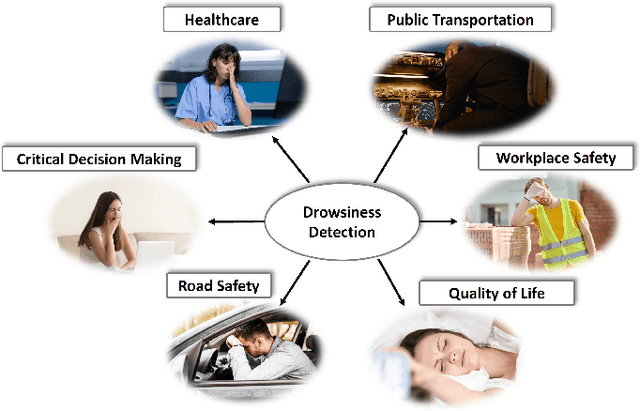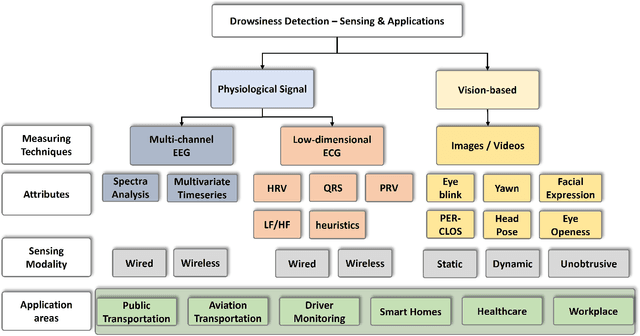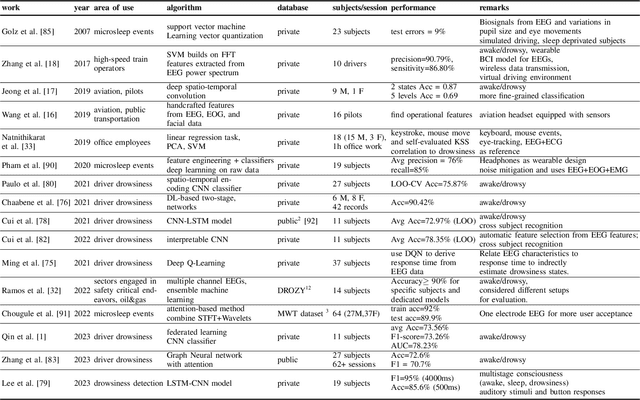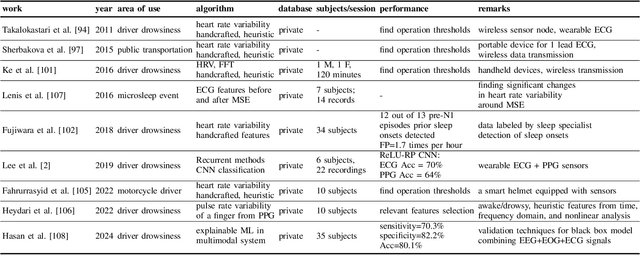A Survey on Drowsiness Detection -- Modern Applications and Methods
Paper and Code
Aug 23, 2024



Drowsiness detection holds paramount importance in ensuring safety in workplaces or behind the wheel, enhancing productivity, and healthcare across diverse domains. Therefore accurate and real-time drowsiness detection plays a critical role in preventing accidents, enhancing safety, and ultimately saving lives across various sectors and scenarios. This comprehensive review explores the significance of drowsiness detection in various areas of application, transcending the conventional focus solely on driver drowsiness detection. We delve into the current methodologies, challenges, and technological advancements in drowsiness detection schemes, considering diverse contexts such as public transportation, healthcare, workplace safety, and beyond. By examining the multifaceted implications of drowsiness, this work contributes to a holistic understanding of its impact and the crucial role of accurate and real-time detection techniques in enhancing safety and performance. We identified weaknesses in current algorithms and limitations in existing research such as accurate and real-time detection, stable data transmission, and building bias-free systems. Our survey frames existing works and leads to practical recommendations like mitigating the bias issue by using synthetic data, overcoming the hardware limitations with model compression, and leveraging fusion to boost model performance. This is a pioneering work to survey the topic of drowsiness detection in such an entirely and not only focusing on one single aspect. We consider the topic of drowsiness detection as a dynamic and evolving field, presenting numerous opportunities for further exploration.
 Add to Chrome
Add to Chrome Add to Firefox
Add to Firefox Add to Edge
Add to Edge